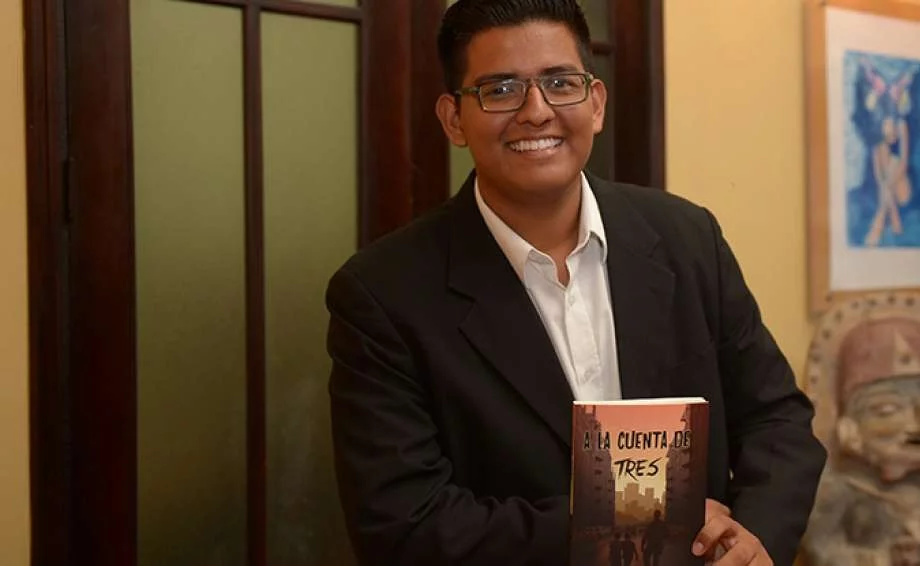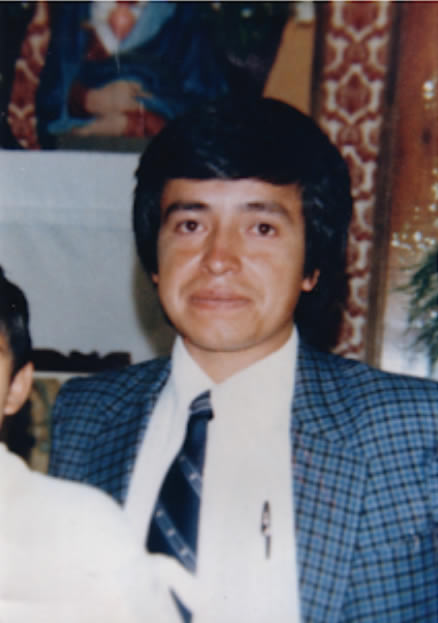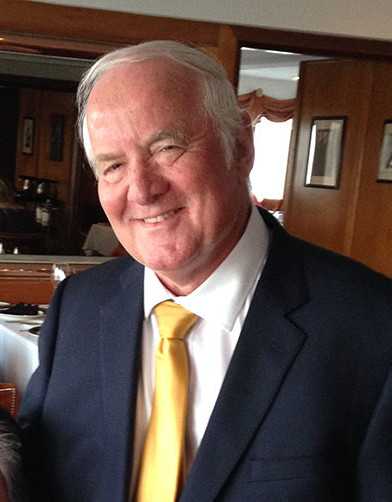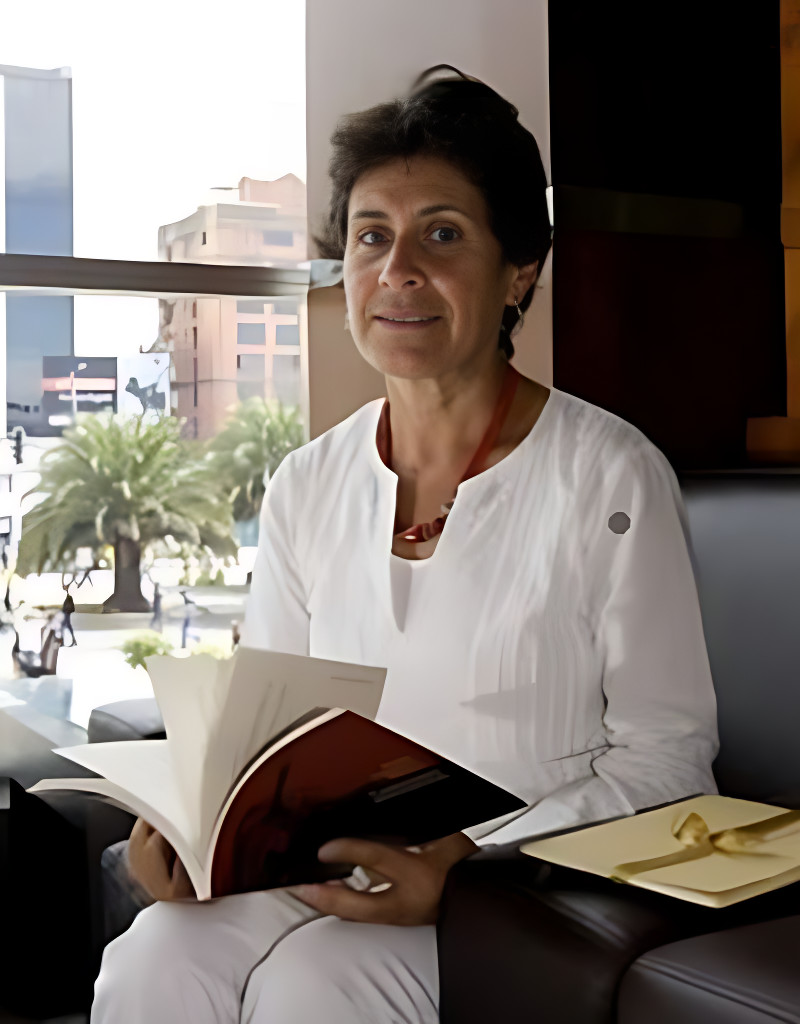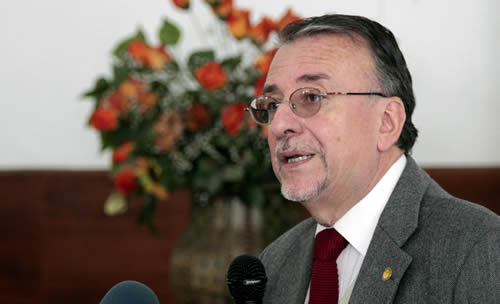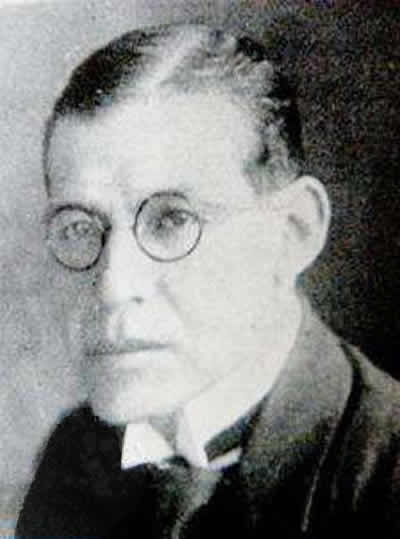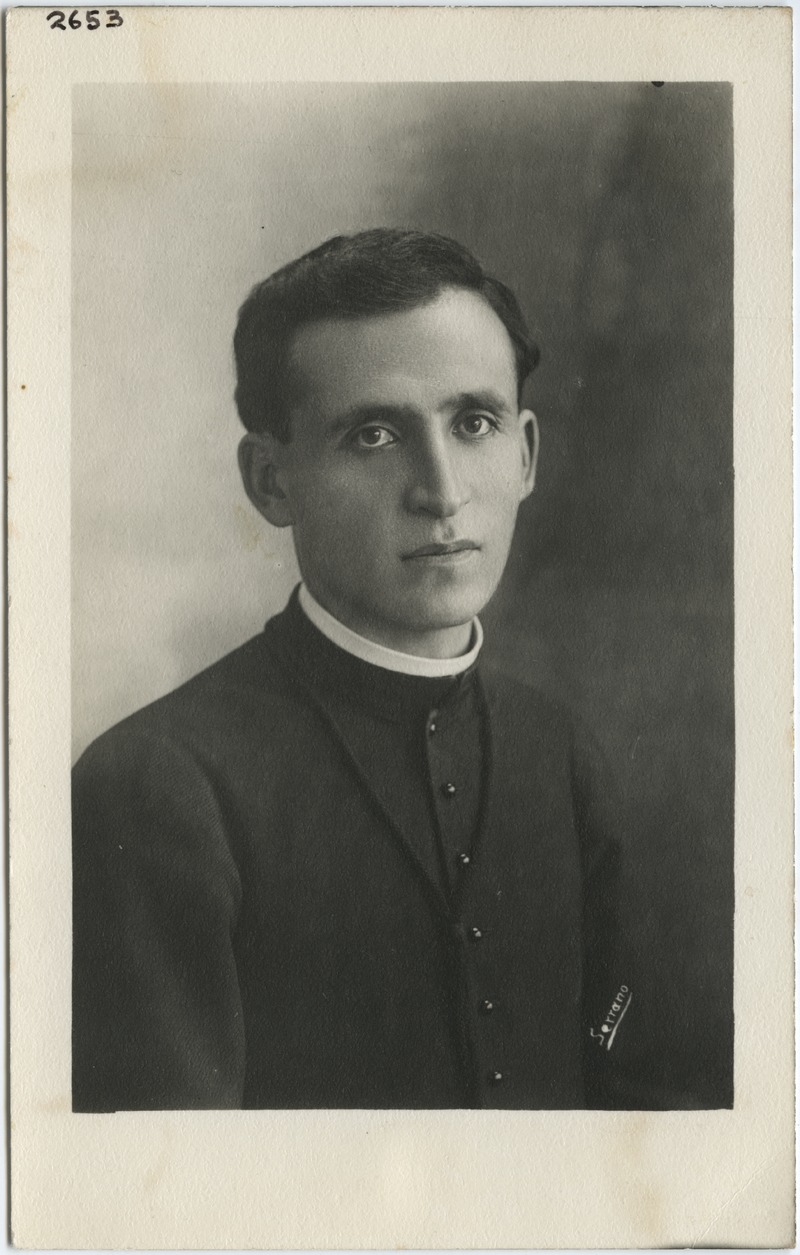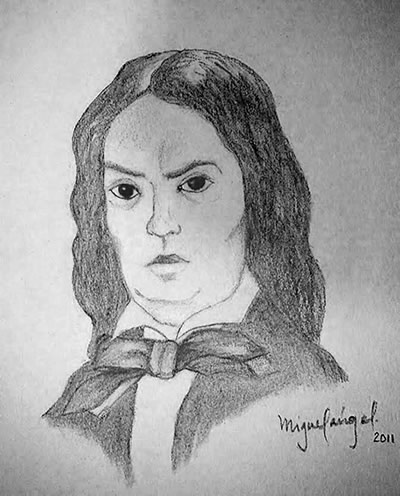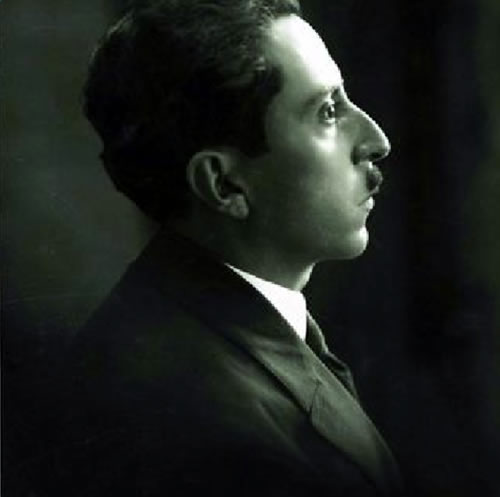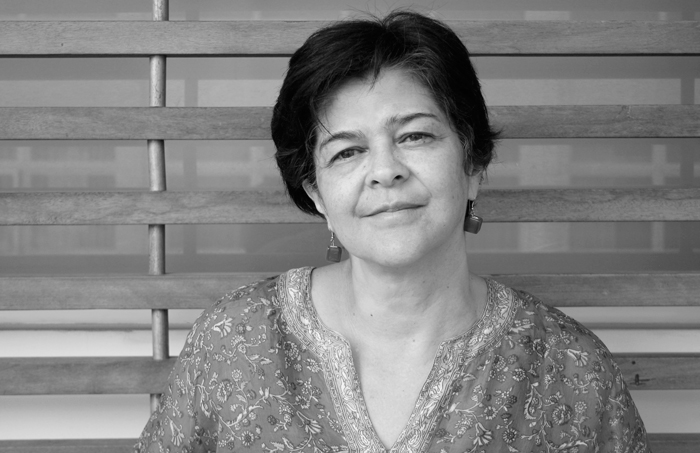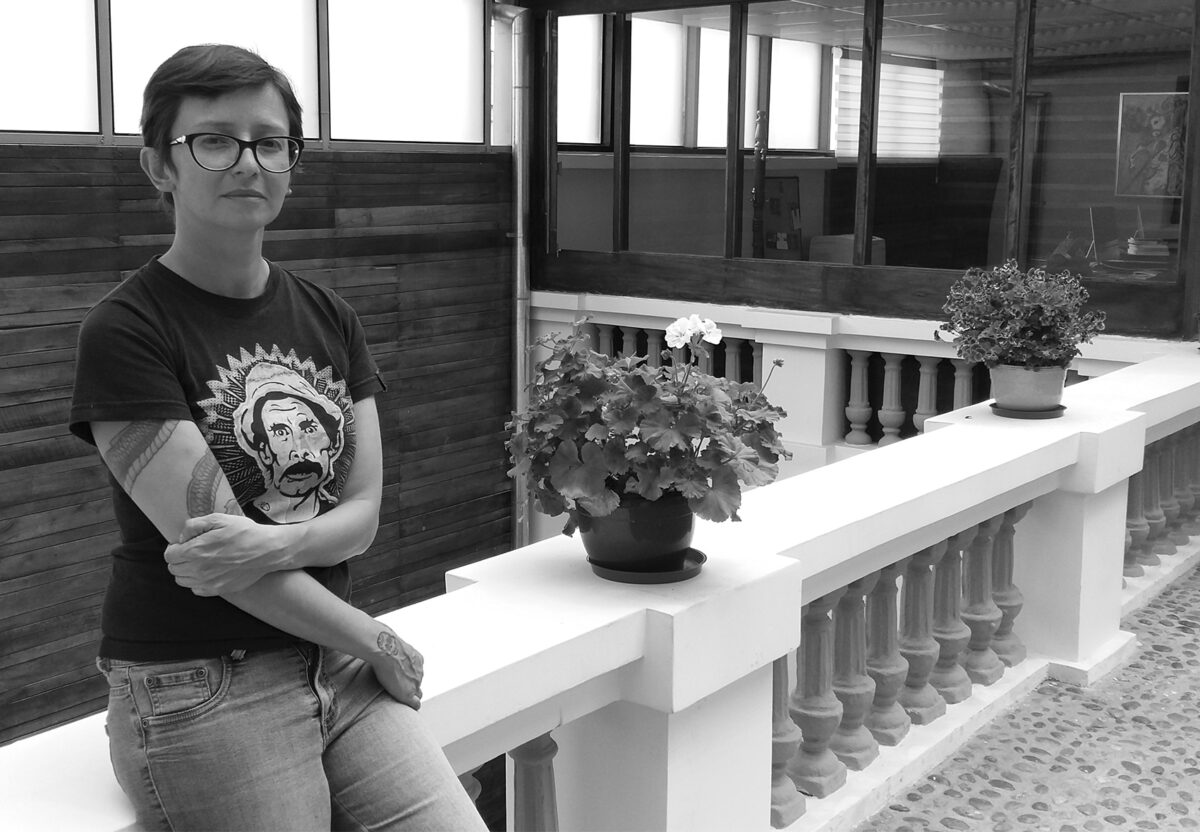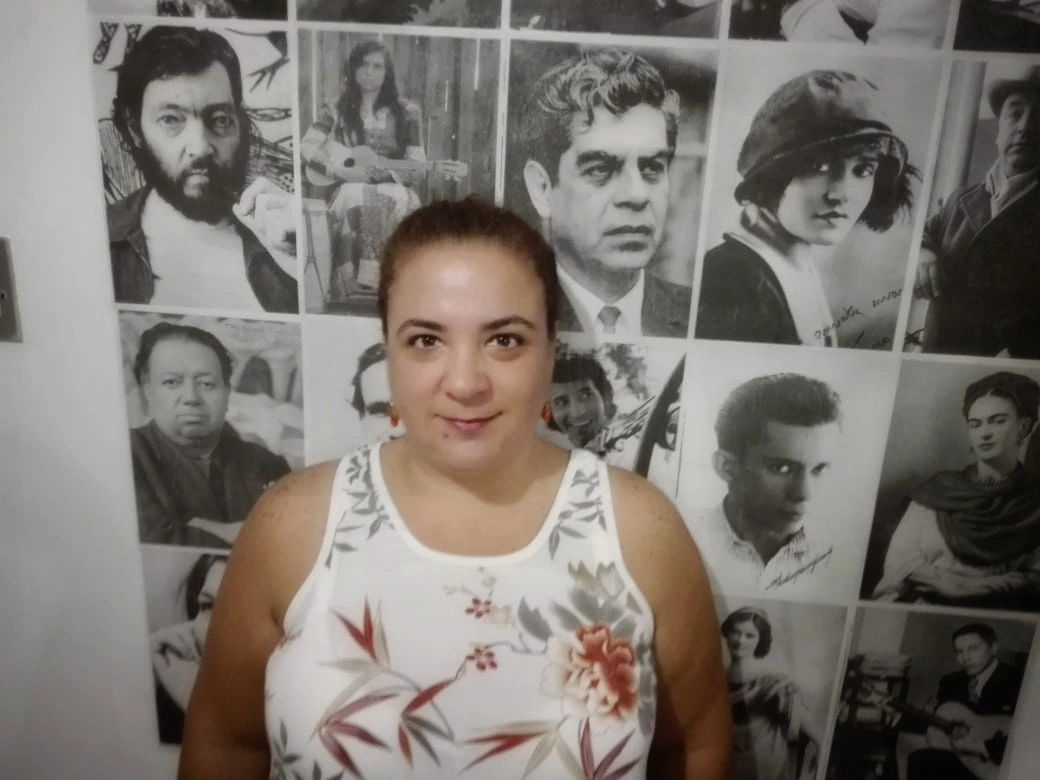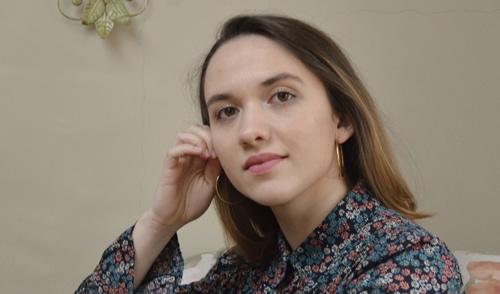Félix Abel Villacís del Valle (March 17, 2000) is an Ecuadorian novelist and poet. He has written four books. He worked as an editor for Editorial Déjà Vu and as the director of Editorial Madriguera from 2019 to 2021. His published books include “A la cuenta de tres” (2016), “La vida que me diste” (2018) and “Nudos” (2021). In 2020 he was a finalist of the eighth edition of “Día del libro y de la Rosa.”
Continue reading “Félix Villacís”Posts
Gustavo Garzón
César Gustavo Garzón Guzmán (Quito, June 8, 1958) was an Ecuadorian writer and literary critic who vanished without a trace on November 9, 1990. In 1980, he joined Miguel Donoso Pareja’s literary workshop at the House of Ecuadorian Culture and co-founded the literary group “La Mosca Zumba.” On November 9, 1990, he went out with a group of friends to a dance club and was never seen again. At the time, the 32-year-old writer was living in Quito, Ecuador, where he was working on his doctoral thesis in Literature at the Pontifical Catholic University of Ecuador. On January 28, 2021 the Ecuadorian government admitted responsibility for his kidnapping before the Inter-American Court of Human Rights. A documentary about his life, “Brutal como el rasgar de un fósforo,” was made in 2021.
Continue reading “Gustavo Garzón”Theodore Alan Sackett
Theodore Alan Sackett is an American university professor and Spanish literature scholar. Sackett is widely regarded as one of the foremost literary authorities on the novels of Ecuador’s most famous author, Jorge Icaza, and his work is frequently cited in critical essays and research studies on Icaza’s novels. He wrote an important book-length study on Jorge Icaza’s novels, “El arte en la novelistica de Jorge Icaza,” which was published by the House of Ecuadorian Culture in 1974. He also contributed to Ricardo Descalzi and Renaud Richard’s 1988 critical edition of Jorge Icaza’s novel “El chulla Romero y Flores” (1958), analyzing the composition, lexicon, and stylistics in Icaza’s mestizo-themed masterpiece. He worked as a Spanish professor at the University of Southern California from 1965 to 1996, and then as a professor and Chair of the Spanish department at the University of Nevada, Reno from 1996 to 2002.
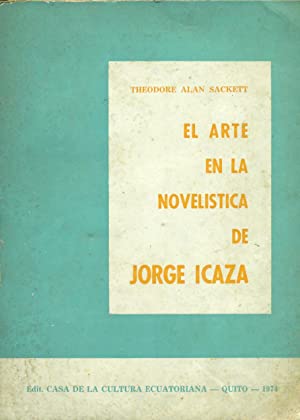
Jennie Carrasco Molina
Jennie Carrasco Molina (Ambato, 1955) is an Ecuadorian novelist, short story writer, poet, journalist, editor, university professor and holistic therapist. She has worked with the press and on women’s issues. Her works include the short story collection “La diosa en el espejo” (1995), the poetry collection “Arañas en mi vestido de seda” (2001), and the novel “Viaje a ninguna parte” (2004). In 2011 her poetry collection “Confesiones apocalípticas” won the prestigious Jorge Carrera Andrade Prize. Some of her poems have been translated into English.
Continue reading “Jennie Carrasco Molina”Enrique Ayala Mora
Enrique Ayala Mora (Ibarra, November 13, 1950) is an Ecuadorian historian, essayist, editor, university professor and politician. He works as a professor at the Central University of Ecuador and the Simón Bolívar Andean University. He was a deputy of Ecuador, vice president of the National Congress and member of the Constituent Assembly (1997-1998). He is currently the President of the Ecuadorian Socialist Party. As an editor and writer, he has published over 30 works on history and politics.
Continue reading “Enrique Ayala Mora”Sergio Nuñez
Sergio Núñez Santamaría (Santa Rosa, Ambato, October 7, 1896 – Quito, 1982) was a novelist, short story writer, poet, playwright, literary critic and pedagogue. As a poet, he wrote in verse and prose, and was greatly influenced by the modernismo literary movement of Ruben Dario of Nicaragua. In 1918 he published his first poetry book, “Hostias de fuego,” with a prologue by Medardo Ángel Silva. He belonged to the “30 Generation,” a group of authors from the 1930’s Ecuador who used social realism in their fiction to denounce how Indians were treated in Ecuador. His novellas “Juego de hacienda” and “Circunferencia” are considered Indigenista fiction. A private school in Guayaquil bears his name.
Continue reading “Sergio Nuñez”Manuel María Palacios Bravo
Manuel María Palacios Bravo (Cuenca, January 9, 1891 – 1972) was an Ecuadorian poet, writer, and Catholic priest known for his deeply spiritual and melancholic works that blended religious themes with modernist and neoclassical influences. His poetry often reflected on life, death, and the human condition, with notable works including Chabita (1922), La elegía del Pichincha (1923), and Cantos de ayer (1953). He was also a member of the Academia Ecuatoriana de la Lengua and played a key role in Ecuador’s cultural and religious spheres, particularly through his involvement in the construction of Cuenca’s Cathedral. In 1957, the University of Cuenca included a selection of his poems, curated by Rigoberto Cordero y León, in the anthology Presencia de la Poesía Cuencana.
Continue reading “Manuel María Palacios Bravo”Eloy Proaño
Eloy Proaño Donoso (1890-1965) was an Ecuadorian poet. In 1946 he published a poetry collection, “Humo.”
Continue reading “Eloy Proaño”Luis F. Veloz
Luis F. Veloz (Quito, 1885-1959) was an Ecuadorian poet and sculptor. Along with his friends Aurelio Falconí and Julio E. Rueda, he founded Altos Relieves, one of the first magazines to publish young poets influenced by modernismo in Ecuador. His poems were published in Altos Relieves and the magazine Revista de la Sociedad Jurídico-Literaria. He wrote about art and translated some of the poems of the Italian poet Gabriele D’Annunzio into Spanish. He stopped writing verses to focus on sculpting. In 1918, the Ecuadorian government sponsored him to go the school of Fine Arts in Rome, where he lived for many years. He’s best remembered for his controversial marble statue La Bacante y el Fauno, which was commissioned by the Illustrious Municipal Council of Quito (Ecuador) and created in Rome. Today this statue can be found in the Malecon 2000 in Guayaquil. A collection of his poems and some plays have yet to be published.
Continue reading “Luis F. Veloz”Felix Valencia
Felix Valencia Vizuete (Latacunga, August 31, 1886 – Quito, January 3, 1919) was an Ecuadorian poet often called the “Poet of Sorrow.” During his lifetime he published the books “Cantos de vida y muerte” [Songs of Life and Death] (1911) and “La epopeya de San Mateo” [The Epic of Saint Matthew] (1914). In 1934, his friend, writer and journalist Alejandro Andrade Coello, published “Los poemas del dolor” (Poems of Sorrow), a posthumous collection of his poems. Valencia’s life and work were marked by loneliness, misanthropy and melancholy.
Continue reading “Felix Valencia”Alfonso Moreno Mora
Alfonso Moreno Mora (Cuenca, April 21, 1890 – Cuenca, April 1, 1940) was a modernist poet. He co-founded the magazine Páginas Literarias with his cousin Miguel Moreno Serrano in 1918, becoming its editor in chief. He published poems in this magazine under the pseudonyms Enrique de Rafael and Raedel. He also promoted the work of modernist poets such as Argentina’s Leopoldo Lugones and Nicaragua’s Rubén Darío. Some of the magazines that published Moreno Mora’s poems include Austral, Azul, Proteo, and América Latina. He also contributed to the daily newspapers Diario del Sur, La Nación, and El Mercurio. He was a member of Ecuador’s so-called Decapitated Generation and authored works such as “Visión lírica,” “Epístola a Luis Felipe de la Rosa,” and “Elegías.” On April 1, 1940, shortly before his 50th birthday, Alfonso Moreno Mora passed away in his hometown. Eleven years later, his brother and fellow poet Manuel Moreno Mora published “Alfonso Moreno Mora. Poesía,” a compilation of his literary work.
Continue reading “Alfonso Moreno Mora”Cecilia Velasco
Cecilia Velasco (Quito, May 1965) is an Ecuadorian author of children’s literature and was editor of the Central Bank’s magazine Difusión Cultural. She worked as a columnist for the Quito newspaper Hoy for nearly two decades. She teaches language and literature to children and adolescents. She was awarded the Norma-Fundalectura’s Latin American Prize for Children’s and Youth Literature in 2010. She currently lives in Guayaquil where she works as a teacher at The University of the Arts (UArtes).
Continue reading “Cecilia Velasco”Sandra Araya
Sandra Araya (Quito, 1980) is an Ecuadorian writer. In 2015, she received the La Linares Prize from the House of Ecuadorian Culture and the National Reading Campaign for her novella “La familia del Dr. Lehman.” Her short stories have appeared in magazines such as El Búho, Aceite de perro, Big Sur, Ómnibus, Casapalabras, Letras del Ecuador and Aurora Boreal. Her work has appeared in several anthologies. She has also written for the publications La Barra Espaciadora and Diners. In 2022, she publisher her first collection of short stories entitled, “Salvajes (del día después).” She is currently the editor of Babieca, a film and theater magazine.
Continue reading “Sandra Araya”María Paulina Briones
Mara Paulina Briones Layana (Guayaquil, 1974) is an Ecuadorian writer, editor, and professor. She currently teaches Journalism and Literature, as well as Journalistic Projects, at Casa Grande University and the University of the Arts (both in Guayaquil). She also runs the publishing company Cadaver Exquisito, which she founded in 2012, and has been the director of La Casa Morada, a cultural initiatives company that promotes reading, since 2009. She is featured in the bilingual poetry collection “Lengua me has vencido” (2017). Some of her stories have appeared in the Latin American Culture magazine Guaraguao, as well as the virtual magazines El Otro Lunes and Matavilela from Ecuador.
Continue reading “María Paulina Briones”Camila Peña
Camila Peña (Cuenca, 1995) is an Ecuadorian poet, radio host and ballet dancer. In 2020 her first poetry book “Jardín Transparente,” won the Francisco Ruiz Udiel Hispanic American Poetry Award and will be published by Valparaíso Ediciones. She has a master’s degree in Artistic, Literary and Cultural Studies with a specialty in Comparative Literature, Literary Theory and Rhetoric from the Autonomous University of Madrid. In addition, she is a ballet dancer with 19 years of training and experience in creating artistic projects. She is currently the host of a cultural program on a radio station in Cuenca.
Continue reading “Camila Peña”